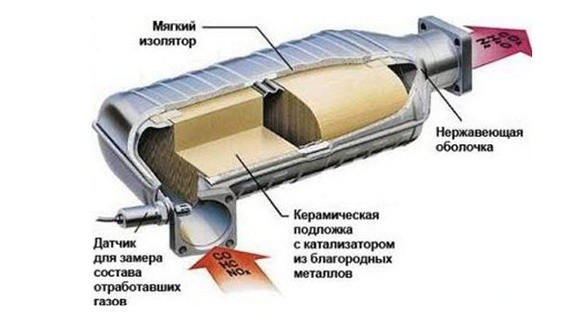
How long does a catalytic converter last?
The catalytic converter converts pollutants in the exhaust system into less toxic pollutants using a redox reduction method. The catalytic converter is located in your vehicle's exhaust system and is essential for…
The catalytic converter converts pollutants in the exhaust system into less toxic pollutants using a redox reduction method. The catalytic converter is located in your vehicle's exhaust system and is essential to control your vehicle's emissions. It basically burns emissions and converts them into water vapor and oxygen. Your vehicle's main emissions include nitrogen gas, carbon dioxide (CO2), water vapor (H2O), carbon monoxide (CO), hydrocarbons (VOC) and oxides of nitrogen (NO and NO2).
Most modern cars are equipped with a three-way catalytic converter. The first stage of a catalytic converter is a reductive catalyst. At this stage, rhodium and platinum reduce nitrogen oxide emissions. The second stage is the oxidation catalyst. Here, unburned carbon monoxide and hydrocarbons are recovered by burning them on a palladium and platinum catalyst. The control system is the third stage and controls the flow of exhaust gases. This information is used to control the fuel injection system via the oxygen sensor. The sensor will send information to the engine about how much oxygen is in the exhaust. If there is too much or too little oxygen, the engine computer can increase or decrease the amount by adjusting the air/fuel ratio. This ensures that there is enough oxygen in the exhaust gases so that the oxidation catalyst can efficiently burn carbon monoxide and hydrocarbons.
The catalytic converter operates at extremely high temperatures, so it is not uncommon for it to fail. For example, misfires in the engine system can overheat and damage the catalytic converter. In addition, exhaust can enter the catalytic converter, which creates back pressure and causes the engine to stall. This will cause your vehicle to stall while driving. The catalytic converter can also be damaged due to impacts from road debris. Watch for the following signs that indicate a catalytic converter failure:
- Poor fuel economy
- The vehicle does not perform well, such as stalling while driving or a jerky feeling
- Engine misfire
- Check engine light
- The smell of rotten eggs
Because the catalytic converter can fail or fail over time, the catalytic converter may need to be replaced.
